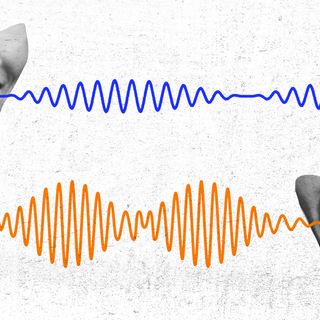The cultural legends about metabolism are relentless. In this discourse, people in their late teens and early 20s seemingly have a high metabolism rate, and accrue the most benefits of eating whatever they want; evidence so far has also suggested the metabolism rate slows down with age. But a new international study counters this belief, arguing that the metabolism of a teenager is the same as an adult — that metabolism doesn’t really vary that much before we turn 60.
Published in Scienceon Thursday, the findings of the study show metabolism peaks around age one — when babies actually burn calories 50% faster than adults. But between the ages of 20 to 60 years old, the metabolism rate plateaus and doesn’t really change. It not only debunks some ideas about energy expenditure but also has implications on age-related diseases.
“This study reveals that there are lots of misconceptions about how metabolic rate changes with age,” John Speakman, co-author of the research and a professor at the University of Aberdeen, wrote in the study.
To show this, the researchers surveyed more than 6,000 people across 29 countries of varying ages — including someone who was eight days old up to a 95-year-old individual. The idea was to calculate the “total daily energy expenditure” — adjusting these for weight, body sizes, and other conditions — the energy required to perform fundamental functions such as breathing and digesting food.
Metabolism essentially refers to the rate at which the body burns calories and converts the food into energy, fueling and sustaining bodily functions. “Low” and “high” metabolism rates are generally associated with health conditions, and also age.
The energy expenditure of an infant is the same as that of an adult. While a one-year-old’s metabolism is at its peak, the rate gradually declines roughly 3% a year until around age 20, and then stabilizes. Which means, the metabolism rate does not slow down for people at middle age.
Colleen Tewksbury, a professor at the University of Pennsylvania, called the study “surprising.”
Related on The Swaddle:
Untrending: Lemon Water Cannot Help You Lose Weight, Or Boost Your Metabolism
“Historical convention was really that with different life cycle changes — of puberty, of pregnancy, of menopause — we thought that there was some shift in metabolism and it impacted nutrition status and how we approached things from a nutrition standpoint. This high-level rigorous assessment does not show that,” she told NBC News.
Metabolism has been most widely associated with weight gain in people in their late 20s and 30s. But the findings essentially dismiss that belief. “It’s not as if the weight gain is occurring because you don’t ‘burn the same calories’ anymore,” Steven Malin, an associate professor of kinesiology, noted.
The results are “illuminating on something that we thought we know a lot about and realize that there’s more to be discovered.”
So while metabolism may not solely be linked to weight gain or obesity in adults, other contributing factors like lifestyle changes, unique biology, food intake, physical activity level, sleep changes, etc. all play a role in shaping the nutritional status.
Of course, metabolism does decrease substantially after the age of 60. And while people do lose muscle mass as they grow old, this process is supplemented with the actual change in metabolism tissue in older people.
“It cannot be a coincidence the increase in incidence of non-communicable diseases and disorders begins in this same time frame,” Timothy Rhoads and Rozalyn Anderson, researchers of geriatrics at the University of Wisconsin, wrote in a commentary. The findings change the way medications are prescribed to people — with the idea that people over 60 could be metabolizing drugs differently.
“These intriguing results suggest we may need to take more care to tailor health advice and disease management in the context of an individual’s age and metabolic rate,” Gareth Lavery, professor of molecular metabolism at the University of Birmingham, who was not involved in the work, told The Guardian.
“The next step… is to apply what we now know about metabolic variation and energy expenditure in humans to shape nutritional and public health strategies that preserve the quality of our later years.”




